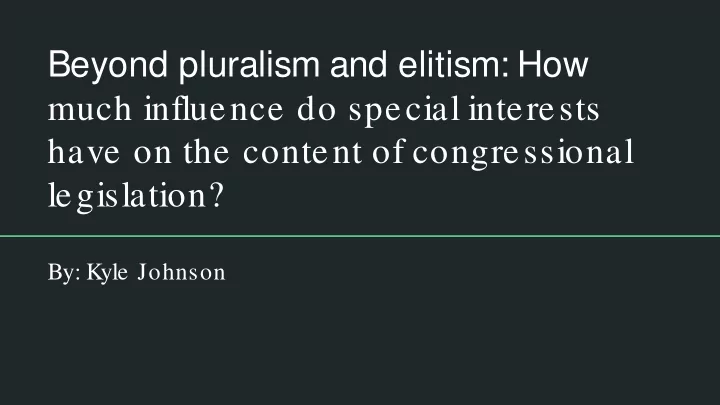

Beyond pluralism and elitism: How much influence do special interests have on the content of congressional legislation? By: Kyle Johnson
Introduction Interest groups in society How is power exercised?
Why it matters? Democracy Individual voice
Previous Research (classics) Pluralism ● Robert Dahl Who Governs: Democracy and power in an American City ● David Truman The Governmental process: Political Interests and Public Opinion ● Seymour Lipset Political Man: The Social Bases of Politics Elitism ● C Wright Mills The Power Elite ● E E Schattschneider The Semisovereign People: A realist’s view of democracy in America ● G William Domhoff Who Rules America Now?
Previous Research (recent) Contributions matter ● Elections and congressional votes. Brunell, T. L. (2005) and Stratmann, T. (1998) ● Roll Call votes. Constant, L. M. (2006), Brooks, J., Cameron, A., & Carter, C. (1998), and Mallinson, D. J. (2014) ● Legislative involvement and committee. Hall, R., & Wayman, F. (1990) Contributions do not matter ● Constituent influence. Smith, J. (2015), Bianco, W. (1994) ● Tenuous link between contributions and votes. Milyo, J. (1997) Money matters, not contributions ● Lobbyists improve odds. McKay, A. (2012) ● Resources and knowledge. Hojnacki, M., & Kimball, D. C. (1998)
Case studies ● Remove provision from Dodd-Frank ● Energy Task Force sponsored by fossil fuel industry ● Exempted from new regulations for coal power plants
Results and implications Disproportionate influence among interest group. Understanding interest group’s complex nature
Thanks for listening! Any questions?
Recommend
More recommend